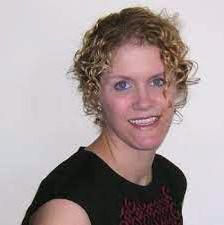Art Educator to Appraiser

Editor’s Note: ASA participated in the College Art Association (CAA) 111th Annual Conference February 15–18, 2023 at the New York Hilton Midtown the largest convening of art historians, artists, designers, curators, and visual art professionals in the US. Activities included presenting a session on determining the authenticity, rarity, and value of a work of art; exhibiting; and providing attendees with information about ASA and the appraisal profession, including a special flyer for educators on the opportunities to transition to a new career or side job. This article spotlights these opportunities for art educators.
Transitioning to a New Career or Side Job | Contributor: Jennifer L. Strasbaugh
As an art educator, you have a natural passion for the arts, history, and a strong commitment to professionalism. If you are currently a part-time art educator, or adjunct instructor at the college level, you may sometimes wonder how you could spend more time developing your own arts business, and less time on campus.
Have you ever wondered if you could turn your art educator training and experience into a new career, either full or part-time? Academia, both at the secondary and higher-education levels, has become even more time consuming than in the past. Part-time educators are sometimes asked to spend unpaid hours in professional development, or in helping struggling students re-gain traction after two years of Covid online learning. Though this work is important and rewarding, you still might find yourself longing for an option to begin a new career.
Arts educators might contemplate how they can translate their broad knowledge of the arts, as well as their academic research and visual literacy skills into a personal business, or a career outside of education. Yet, “who’s going to hire someone who loves to study the decorative and/or fine arts?” you may ask yourself. Well…welcome to the world of personal property appraisal.
What is a Personal Property Appraiser?
A personal property appraiser determines the value of property, often for insurance purposes, but also for charitable contributions, estate or gift tax preparation liabilities, insurance or damage and loss claims, equitable distributions, fair rental and sale decisions, collateral loans, tax audits (foundations), or legal disputes.
While many appraisers may choose to specialize in just one area, other appraisers practice in multiple specialties. Such areas include fine art, decorative art, antiques, automobiles, boats, books/manuscripts, coins, collectibles, firearms, memorabilia, musical instruments, photography, stamps, textiles, wine and much more.
What Do Personal Property Appraisers Do?
Many personal property appraisers work independently, with a great deal of flexibility; others find positions at art galleries, auction houses or insurance companies. Museums or private collectors are other possible sources for employment.
Appraisers research and analyze all types of personal property, and use a variety of resources, such as books, photographs, databases and comparable examples in order to determine the value of the piece and then prepare a credible appraisal report. This report includes a detailed description of the item (with photographs); methodology, analysis, and data used to provide a value conclusion and the rationale for value; finally, a signed certification that states the appraiser is not biased and does not have a present or prospective interest in the personal property.
How to Start Your Career as a Personal Property Appraiser?
First, it’s recommended you have a bachelor’s degree from an accredited school, ideally in fine art or art history. Arts educators would already have this credential. Courses of particular value include art techniques, theory and specialized studies of various time periods, regions and mediums.
For an art educator looking to transition into appraising, the next step would be to pursue training, accreditation and membership with a professional organization like ASA. The Society offers a four-course Principles of Valuation program, an Appraising Fine Arts Overview course, as well as an accelerated four-week Appraisal Summer Camp, a two-day Personal Property Appraisal Symposium and a two-day International Appraisers Conference, along with Accredited Member (AM) or Accredited Senior Appraiser (ASA) accreditation programs.
Upcoming ASA Offerings Include:
- PP201 Introduction to Personal Property Valuation (Aug. 1-3, 2023)
- PP202 Development of a Personal Property Appraisal: Research and Analysis (Mar. 6-10, 2023 or Aug. 8-10, 2023)
- PP203 Communication of a Personal Property Appraisal: Report Writing
- (Apr. 17-21, 2023 or Aug. 15-17, 2023)
- PP204 Personal Property Valuation: The Legal and Commercial Environments (Jun. 19-23, 2023 or Aug. 22-24, 2023)
- PP451 Appraising Fine Arts Overview (Apr. 4, 2023)
- 2023 ASA Personal Property Appraisal Symposium (Apr. 30-May 2, 2023)
- 2023 Personal Property Appraisal Summer Camp (Aug. 1-24, 2023)
- 2023 International Appraisers Conference (Oct. 1-3, 2023)
Educational grants are available for qualified individuals through the ASA Educational Foundation.
Membership Matters!
When joining a professional organization like ASA, the benefits quickly add up. Not only do you receive exclusive members-only savings off training offerings and networking events, but you’ll also receive access to professional referrals, a dedicated job bank, Member Directory, FREE news and list-serv subscriptions, members only products/services discounts, and much more.
Know with confidence that it is possible to pivot careers and/or turn your passion into a career!
Start your path today to becoming a personal property appraiser. Visit ASA at http://bit.ly/3WkHORU or call (800) 272-8258.
About the Contributor

Jennifer L. Strasbaugh has been an independent fine arts appraiser since 1995. She has been a member of the American Alliance of Museums since 1992 and a Candidate, American Society of Appraisers since 2003. Since 2009, she has also been developing and teaching for Stevenson University in Baltimore. Strasbaugh has taught a variety of courses including art history, literature and professional practice.
You can follow any responses to this entry through the RSS 2.0 feed. Both comments and pings are currently closed.


Comments are closed.